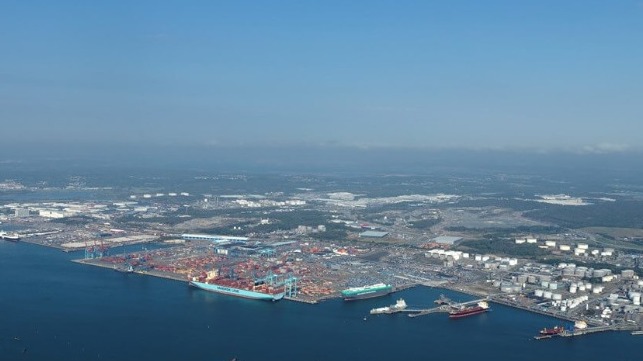Gothenburg Sweden to Form Green Corridors to Rotterdam and Ghent

Efforts are continuing to develop a network of green corridors both between the major ports of Northern Europe as well as using these corridors to form connections on key global routes. Earlier this year a group of the regions leading ports working with the Mærsk Mc-Kinney Møller Center for Zero-Carbon Shipping announced a regional initiative. The port of Gothenburg in Sweden recently became the mission ambassador for the project and this week announced agreements for two green corridors.
Gothenburg, which has independently pursued environmental initiatives, seeks to become a hub in the developing regional effort. Agreements were signed calling for linking the Swedish port with Rotterdam developing sustainable shipping between the two ports. In a separate development, another agreement was signed with the North Sea Port (Ghent) in Belgium seeking to develop another green corridor to take advantage of the strong movement of industrial and food supplies between the ports.
“As one of the world’s most sustainable ports for many years, we are happy to share and spread our experience, as well as taking steps forward and joining forces with other world ports,” said Elvir Dzanic, CEO of the Gothenburg Port Authority. “By fulfilling the pledges of the Clydebank Declaration from COP26 through green corridors, we can now present a more distinct path towards the decarbonization of shipping.”
Port of Gothenburg notes that it has been facilitating the bunkering of methanol for RoPax ferries on a smaller scale since 2015, and published general methanol operating regulations for ship-to-ship bunkering on a larger scale earlier in the year. The Port of Gothenburg is also already providing on shore power supply at multiple terminals in the port.
Under the agreement signed with Rotterdam, the ports will establish a common framework for cooperation to stimulate the use of new alternative fuels. The parties also intend to connect the Green Corridor between Gothenburg and Rotterdam to a larger network of deep-sea corridors. Rotterdam for example also entered into an agreement with the Maritime & Port Authority of Singapore calling for one of the first long-distance green corridors on a major shipping route. The Port of Rotterdam also launched the world’s first barge-to-ship methanol bunkering operation in May 2021.

that matters most
Get the latest maritime news delivered to your inbox daily.
“Traffic between Gothenburg and Ghent in North Sea Port has been at the heart of Scandinavia’s trade with Central Europe since the early 90s,” said Dzanic. “Its significance just keeps on growing as these are major volumes of goods that will now get a significantly reduced climate footprint.
Under the agreement with the North Sea Port, the route between Sweden and Belgium will become a green corridor, as the port authorities have come together, aiming toward using alternative fuels. They expect to launch the green corridor for seagoing vessels by 2025.
